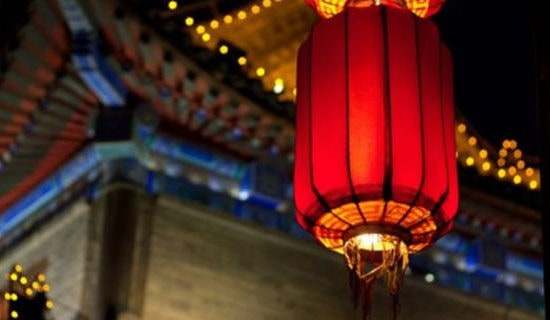春节由来英文
春节由来用英文怎么说呢?下面是由应届毕业生小编为大家带来的关于中国春节的由来,希望能够帮到您!

中国春节的由来
the chinese new year is now popularly known as the spring festival because it starts from the begining of spring (the first of the twenty-four terms in coodination with the changes of nature). its origin is too old to be traced. several explanations are hanging around. all agree, however, that the word nian, which in modern chinese solely means "year", was originally the name of a monster beast that started to prey on people the night before the beginning of a new year.
one legend goes that the beast nian had a very big mouth that would swallow a great many people with one bite. people were very scared. one day, an old man came to their rescue, offering to subdue nian. to nian he said, "i hear say that you are very capable, but can you swallow the other beasts of prey on earth instead of people who are by no means of your worthy opponents?" so, it did swallow many of the beasts of prey on earth that also harrassed people and their domestic animals from time to time.
after that, the old man disappeared riding the beast nian. he turned out to be an immortal god. now that nian is gone and other beasts of prey are also scared into forests, people begin to enjoy their peaceful life. before the old man left, he had told people to put up red paper decorations on their windows and doors at each year's end to scare away nian in case it sneaked back again, because red is the color the beast feared the most.
from then on, the tradition of observing the conquest of nian is carried on from generation to generation. the term "guo nian", which may mean "survive the nian" becomes today "celebrate the (new) year" as the word "guo" in chinese having both the meaning of "pass-over" and "observe". the custom of putting up red paper and firing fire-crackers to scare away nian should it have a chance to run loose is still around. however, people today have long forgotten why they are doing all this, except that they feel the color and the sound add to the excitement of the celebration.
【相关阅读】
贴春联
Paste up/stick spring couplets/scrolls
据说,没有贴过春联的中国人,人生是不完整的!什么?你就没贴过?
嗯,好吧,朕知道了 。
春联通常是成对张贴,因为双数在中国文化中是好运和吉祥的象征。像所有武功秘籍一样,家家户户过年的基本功——贴春联也有一套口诀:人朝门立,右手为上,左手为下。这句话意思是对联的出句应贴在右手边(即门的左边),对句应贴在左手边(即门的右边)。春联的上下联张贴的位置不应太高或太低,一般应以门楣的高低为准。嗯,这套秘籍你掌握了没?
Chinese characters that are auspicious for the coming year are generally written on two pieces of red paper with ink and a brush, and glued by the sides of the doors.
贴福字
Paste up/stick the character of fu
“福”不仅代表着福气、福运,更代表着福。写在红纸上的'“福”字表达了中国人内心对幸福的向往。大家印象中“福”字一般都是倒着贴,谐音意为“福到”了。但是福字一定要倒着贴吗?
民俗专家表示,按照规范的民俗讲究,大门上的福字必须是正贴,象征“迎福”和“纳福”之意,而且大门是家庭的出入口,是一种庄重的地方,所贴的福字,须端庄大方,所以要正贴。而室内的地方比如柜子、米缸等等就可以倒贴福字。
The character fu, or “happiness” is usually written on red diamond-shaped posters. They are usually stuck upside down on the doors. This is because the Chinese character dao (upside down) has the same sound as another dao, which means “arrive”. Placing fu upside down symbolizes the arrival of happiness.
放烟花/鞭炮
Set off fireworks/ firecrackers
老实交代,你是不是就是,或者曾经是过年时用鞭炮“吓人”的那个熊孩子?不过,鞭炮不是用来吓“人”的。传说中,烟花爆竹最开始是用来驱赶“年”这头怪兽的。而现在放烟花、点鞭炮主要是为了增加节日气氛,让年味更浓。想象一下,除夕夜,四处都被烟花的闪闪光芒映亮,鞭炮声震耳欲聋。一家人熬夜就为这个欢乐的时刻,孩子们一手捂着耳朵,一手兴高采烈地点放着他们在这个特殊节日的快乐。这是属于我们所有人的春节记忆。
Chinese people traditionally set off fireworks during Spring Festival, in the belief that this helps scare off the Nian and brings good fortune at the beginning of the year and good luck throughout the year.
【春节由来英文】相关文章:
感恩节由来英文10-02
英文解说成语南辕北辙的由来08-19
感恩节的由来英文10-02
感恩节由来英文简介10-02
感恩节由来英文介绍10-01
光棍节的由来英文09-28
国庆的由来英文版08-02
感恩节的由来英文阅读10-02
感恩节的由来简介英文10-02
感恩节的由来英文简短10-02